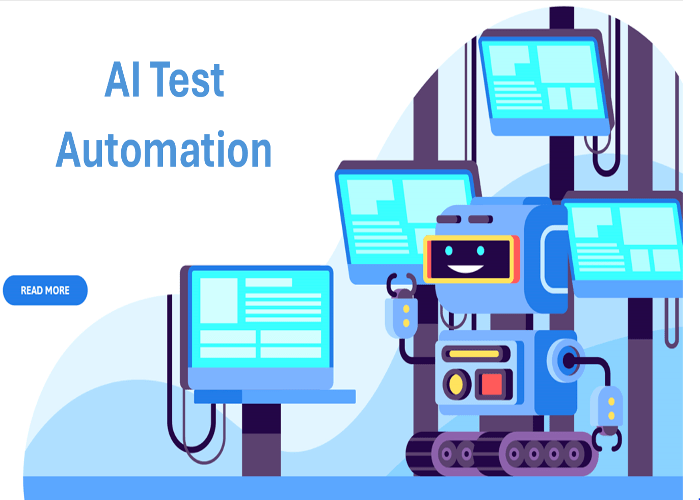Powerful Automation Tools in the World of Regression Testing

Introduction
In the ever-evolving landscape of software development, regression testing remains a critical process to ensure the stability and reliability of applications across successive iterations. Automation tools play a pivotal role in streamlining regression testing. These tools empower QA teams to attain extensive test coverage. Thus, allowing QA teams to detect and mitigate potential defects efficiently to ensure the delivery of top-notch software products.
The market is teeming with several automation tools tailored for regression testing. This blog post will explore leading regression testing automation tools that are making strides.
Open Source vs. Licensed Automation Testing Tools
When comparing open-source and licensed automation regression testing tools, distinct pros and cons are associated with each. Let’s explore them.
Pros of Open Source Automation Tools
Cost-Effectiveness
Open-source tools are typically free to use, which can significantly reduce the financial burden on organizations, especially smaller ones or those with limited budgets.
Transparency and Customization
Open-source tools provide access to their source code, allowing users to customize and extend functionality to suit their needs. This transparency also fosters trust and confidence in the tool’s reliability and security.
Community Support and Collaboration
Open-source projects often have vibrant communities of developers, testers, and users who contribute to the project’s development, documentation, and support. This collaborative ecosystem provides valuable resources, knowledge sharing, and problem-solving assistance.
Rapid Innovation and Updates
Open-source projects tend to evolve rapidly, with frequent updates, bug fixes, and new features driven by community contributions and feedback. This agility ensures that the tool remains up-to-date with the latest technologies, standards, and best practices.
Vendor Independence:
By using open-source tools, organizations can avoid vendor lock-in and maintain independence from proprietary software vendors. This independence gives organizations greater control over their testing processes, data, and infrastructure.
Cons of Open Source Automation Tools
Limited Support
Open-source tools may lack comprehensive technical support, training resources, and documentation compared to their licensed counterparts. Users may need to rely on community forums or self-help resources for assistance with troubleshooting or learning.
Variable Quality and Stability
The quality and stability of open-source tools can vary widely, depending on factors such as community contributions, project governance, and maintenance efforts. Some projects may lack robust testing and quality assurance processes, leading to potential reliability issues.
Learning Curve
Open-source tools may have a steeper learning curve for users, especially those with limited programming or technical expertise. Users may need to invest time and effort in learning the tool’s features, functionalities, and customization options.
Pros of Licensed Automation Tools
Comprehensive Support and Documentation Licensed tools often come with comprehensive support packages, including technical support, training resources, and documentation. This level of support can be invaluable for organizations, especially those with complex testing requirements or limited in-house expertise.
Enhanced Features and Functionality
Licensed tools typically offer a broader range of features and functionality compared to their open-source counterparts. These features may include advanced reporting capabilities, integrations with third-party tools, and specialized testing modules tailored to specific industries or technologies.
Assurance of Quality and Reliability
Licensed tools are usually subjected to rigorous testing, quality assurance processes, and compliance standards to ensure their reliability, stability, and security. This assurance of quality gives organizations confidence in the tool’s performance and suitability for their testing needs.
Cons of Licensed Automation Tools
Cost
Licensed tools require payment of licensing fees, which can be a significant expense for organizations, especially smaller ones or those with limited budgets. The cost of licenses may also increase as the organization scales or adds users.
Vendor Lock-In
Organizations that invest in licensed tools may become dependent on a single vendor for support, updates, and maintenance. This dependency can limit flexibility and make it challenging to switch to alternative tools or platforms in the future.
Complexity and Overhead
Licensed tools may have a higher degree of complexity and overhead compared to open-source alternatives. Organizations may need to invest time and resources in training, implementation, and ongoing management of the tool, which can increase the total cost of ownership.
Both open-source and licensed automation regression testing tools offer unique advantages and disadvantages. Organizations should carefully evaluate their specific needs, resources, and constraints to determine the most suitable option for their testing initiatives. Factors such as budget, customization requirements, support needs, and regulatory considerations should all be taken into account when making this decision.
Top 10 Automation Testing Tools
Selenium
Selenium continues to reign supreme as a powerhouse in the realm of regression testing automation. This open-source testing framework supports the automation of web applications across different browsers and platforms, making it a go-to choice for web developers and QA professionals alike. With its robust WebDriver API and support for various programming languages such as Java, Python, and C#, Selenium enables testers to create reliable and maintainable test scripts. Its versatility, scalability, and extensive community support make it an indispensable tool for regression testing.
Refer to the Selenium website for more information.
Katalon Studio
Katalon Studio emerges as a comprehensive automation testing platform tailored for regression testing. This all-in-one solution offers a range of features for test case creation, execution, reporting, and integration with various testing frameworks and systems. Its user-friendly interface, support for multiple platforms and technologies, and seamless integration capabilities make it a top choice for QA teams seeking to streamline regression testing processes. With its advanced reporting and analytics features, Katalon Studio empowers teams to track test execution results, analyze test metrics, and ensure the quality of applications across successive releases.
Refer to the Katalon Studio website for more information.
TestComplete
TestComplete stands out as a powerful regression testing tool offering a host of features for functional, GUI, and API testing. This commercial tool provides a robust environment for creating, executing, and maintaining automated tests across desktop, web, and mobile applications. With its record-and-playback functionality, scriptless test creation, and support for multiple scripting languages, TestComplete accelerates the automation process and improves test coverage. Its built-in object recognition capabilities, robust reporting features, and integrations with popular CI/CD tools make it a valuable asset for regression testing.
Refer to the TestComplete website for more information.
Ranorex
Ranorex is another leading regression testing tool known for its ease of use and comprehensive feature set. This commercial tool offers a user-friendly IDE for creating and executing automated tests across web, desktop, and mobile applications. With its powerful object recognition and element identification capabilities, Ranorex simplifies test creation and maintenance, even for complex UI elements. Its robust reporting features, integration with version control systems, and support for continuous integration make it a preferred choice for organizations seeking reliable regression testing solutions.
Refer to the Renorex website for more information.
Tricentis Tosca
Tricentis Tosca stands out as an enterprise-grade regression testing platform offering end-to-end automation capabilities. This commercial tool provides a model-based approach to test automation, enabling testers to create reusable test modules and automate tests across web, mobile, and desktop applications. With its AI-powered test automation features, risk-based testing approach, and comprehensive test management capabilities, Tricentis Tosca empowers organizations to achieve maximum test coverage and minimize the risk of regressions in their software applications.
Refer to the Tricentis Tosca website for more information.
Eggplant Test
Eggplant Test offers a unique approach to regression testing automation with its AI-driven test automation platform. This commercial tool uses image-based testing techniques to automate tests across web, mobile, and desktop applications. With its advanced image recognition algorithms, Eggplant Test can interact with applications at the UI level, making it ideal for testing complex and dynamic user interfaces. Its cross-platform support, intelligent test scheduling, and rich reporting capabilities make it a valuable asset for regression testing.
Refer to the Eggplant Test website for more information.
Telerik Test Studio
Telerik Test Studio is a comprehensive regression testing tool designed for web and desktop applications. This commercial tool offers a range of features for test automation, including record-and-playback, scriptless test creation, and advanced test scripting capabilities. With its built-in test recorder, testers can quickly create automated tests without writing a single line of code. Its robust reporting features, integration with version control systems, and support for agile testing methodologies make it a preferred choice for organizations seeking efficient regression testing solutions.
Refer to the Telerik Test Studio website for more information.
UFT One (formerly HP Unified Functional Testing) UFT One is a well-established regression testing tool known for its broad range of capabilities and support for various technologies. This commercial tool offers features for functional, GUI, and API testing, making it suitable for testing a wide range of applications. With its keyword-driven testing approach, reusable test components, and extensive integration with CI/CD tools, UFT One enables organizations to automate regression tests efficiently and ensure the quality of their software products across successive releases.
Refer to the UFT One website for more information.
Leapwork
Leapwork is an emerging automation platform that offers a visual approach to regression testing automation. This commercial tool allows testers to create automated tests using a visual flowchart-like interface, eliminating the need for scripting or coding. With its intuitive design, testers can quickly design, execute, and maintain automated tests across web, desktop, and virtual applications. Its built-in reporting features, integration with popular testing tools, and support for continuous testing make it a valuable asset for organizations seeking to accelerate their regression testing efforts.
Refer to the Leapwork website for more information.
Robot Framework
Robot Framework is an open-source automation framework known for its simplicity and extensibility. While primarily used for acceptance testing, it can also be leveraged for regression testing automation. With its keyword-driven approach and support for various libraries and plugins, Robot Framework empowers testers to create reusable and maintainable test suites. Its versatility, scalability, and active community support make it a viable option for organizations seeking cost-effective regression testing solutions.
Refer to the Robot Framework website for more information.
Conclusion
In summary, the landscape of regression testing automation tools is diverse and dynamic, with a multitude of options available to QA teams. From the versatility of Selenium and Katalon Studio to the power of TestComplete and Tricentis Tosca, and from the simplicity of Robot Framework to the AI-driven capabilities of Eggplant Functional and Leapwork, these tools empower organizations to achieve comprehensive test coverage, detect defects early, and deliver high-quality software products with confidence. By leveraging the right regression testing automation tool for their specific needs and requirements, organizations can enhance efficiency, reduce time-to-market, and ensure the success of their software projects in today’s fast-paced digital landscape.


🗨️ Reader Comments